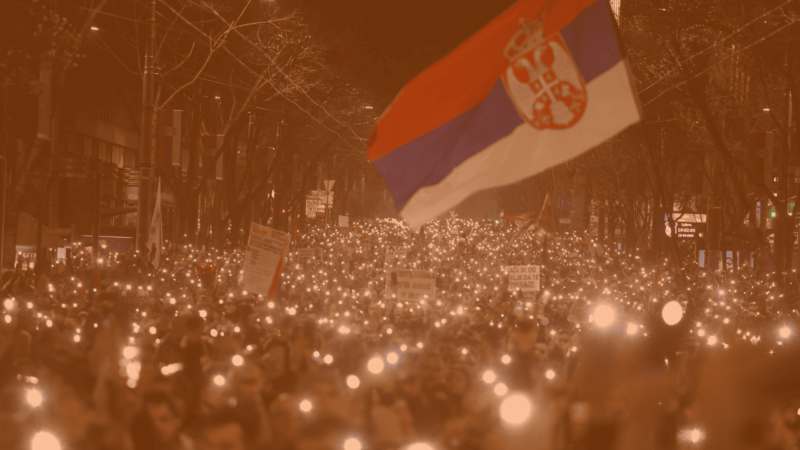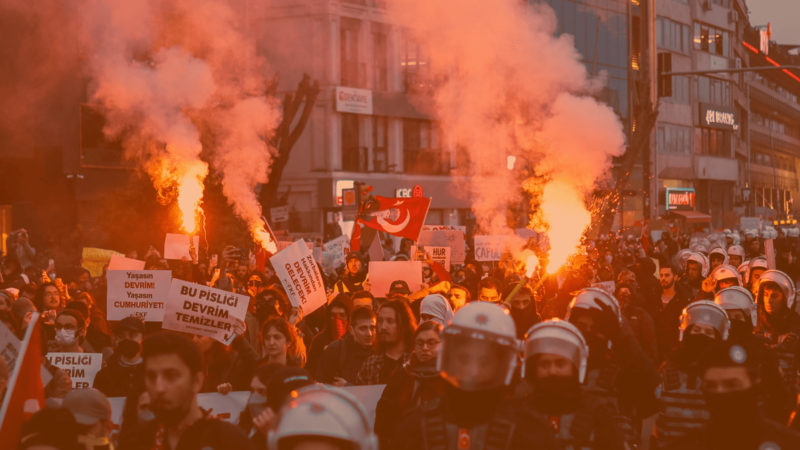The recent sinking of a migrant ship off the coast of Greece resulted in the loss of over 700 human lives, but it is not only those who cheer on anti-migrant policies who are culpable.
For the policymakers, this has a positive connotation because it conveys the message they want to send to people wanting to immigrate to Europe: ‘keep out!’
Yet the cycle in which liberalism comes out of the closet in the form of fascism is again maturing in Europe, as the absence of anti-capitalist organised groups has played an enormous role in leaving the masses to liberal-fascist demagogy.
The lack of empathy with immigrants has a twofold dimension: the dehumanisation of the self and the other.
How is it possible that as people die trying to cross to Europe, parties and political organisations celebrating their deaths and suffering are getting stronger?
My father used to say: whoever sows winds reaps tempests.
The demise of the anti-capitalist left
The death of the anti-capitalist left is the product of a comprehensive strategy of the capitalist elites in which Marxist, socialist, and communist intelligentsia was infiltrated, scattered, divided, conquered, and substituted by the postmodern left.
The goal of this new left was to paralyse any attempt to confront and change the capitalist system. It provided instead two sets of theories. First, an eschatological, nihilist framework in which capitalism was recognised as flawed, but simultaneously one had to see that there is no other alternative to it because all concrete socialist tentatives are imperfect.
Second, the destruction of objective reality in which common goals and pains are felt by us all in constant acts of recognition, and in its place, a subjective, arbitrary, irrational worldview should become the criteria of the truth, translated in the reactionary notion of personal identity.
Irrespective of how successful this endeavour by the power elites was, it could only occur if the anti-capitalist left imploded. The power of anti-capitalism is embedded in two pillars: to have reality on its side – not subjective perceptions but objective reality – and to be the spokesperson, the translator, the mediator, the teacher and, at the same time, always the pupil of the working masses, of those who are dispossessed from the means of production, that is, the 99 percent of the people. Therefore, the anti-capitalist left must bear the foremost responsibility for its own disfranchisement.
Capitalism cannot be reformed
Before the status quo hijacked social discourse and the hearts and minds of the people, the anti-capitalist left had already suffered a metamorphosis: it had now become the let’s-reform-capitalism left. This was not only a political but also a theoretical and methodological betrayal. Can there ever be a reformed and ethical slavery? Can there ever be a regulated and ethical rape? Of course not.
They are ontological impossibilities. Nonetheless, when it comes to capitalist exploitation, in the eyes of the former anti-capitalist, the now reformist left, it could be rebranded. Its postmodern irrationalism declares: changing the name changes reality. Therefore, if capitalist exploitation is now painted with the colours of the concepts of liberal democracy, then – voila! – capitalism must have become democratic.
For the reformist left, the oxymoron of capitalist democracy could simply be ignored. Now, the reformist left felt it became part of the club; it had the illusion – as most of the so-called leftists have until today – that it could change the system from the inside, while in reality, it was the system that was changing the left.
Although neoliberalism and postmodernism are two sides of the same coin, their existential condition was the capitulation of the anti-capitalist left. Meanwhile, its new task became to provide legitimation for the system both abroad and at home.
Post-World War II has been virtually universally conceived in an anti-historical fashion. Not only the rise of fascism appeared as an anomaly, disconnected from its liberal ties, but also the so-called welfare system (or Keynesianism) was embraced acritically. It ignores its existence as a reaction to the Soviet Union’s welfare state. Moreover, without a socialist path going on, it is, in fact, a system of managing and controlling the (precarity of the) masses so that any emancipatory expectation never comes to fruition while the system is assimilated and protected by those same people being exploited.
And this connects with the second function of the Keynesian system, namely, to destroy any empathy towards the other, to reaffirm the values of capitalist egoism. While third-world countries were being plundered and those who fought against classical colonialism were demonised, capitalist welfare was sustained on the backbone of underdeveloped countries.
The reformist left therefore renders war, plunder, destruction, and exploitation as reasonable enterprises. Simultaneously, the power of the left, which was previously anchored on the people, faded; the people, conversely, lost representation because the reformists not only parroted the narratives of the status quo but distanced themselves from the masses with their irrational claims disconnected from the broad demands of the people in their daily lives.
This, in turn, resulted not only in the lack of representation of the people by the intelligentsia but even more importantly in the total de-politicisation of the masses, whose spiritual lives lost connection with the world around them. “There is no such thing as society,” as Margaret Thatcher proclaimed.
Consequently, people were not only atomised at work by the capitalist class, their power as a class, which had existed until that moment, was declared extinct. Now, there was only economic, political, and social atomisation.
The modern anti-capitalist
Since 2008, many people have started to claim to be anti-capitalist, to participate in the people’s struggles, to be progressives or even radicals. In practice, they are simply relativising postmodern nihilism and assimilating the old posture of the former reformist left. The practical result is the continuation of the disconnection between the real people and the leftists, who considered themselves bearers conveying the message of the people.
Ordinary people, being left to their own fates for the past 40 years, see in the empty rhetoric of a more extreme wing of the ruling power their confidant. The message of the extreme right-wing shows a certain degree of empathy while at the same reaffirming and protecting egoist values, which have become the sole social bond among them after decades of neoliberalism.
Contemporary immigration from North Africa and the Middle East is the perfect example. After allowing the elites to destroy, invade, conquer, and pillage those regions, creating millions of refugees, the reformist left is suddenly surprised that the pain of those trying to seek a better life in Europe is not met with compassion. After decades of an ideology of dehumanisation of the other, this left thinks the masses who are negatively reacting are to blame.
The refugee crisis is a tragedy that the United States and Europe have objectively created while subjectively constructing an image of superiority for themselves and inferiority for the other. Add to this the worsening of the condition of life in Europe, especially since 2008, and a recipe for disaster is ready to be served.
History does not contain a destiny, and dark moments are merely transitory. However, if the self-proclaimed left continues on this path of reform and identities, it will only prolong its necessary destruction before a new movement can indeed represent the people; meanwhile, the suffering of both ‘locals’ and immigrants will remain trapped within the logic of capitalist conflict. It is time for self-critique before new affirmative actions can be made.
Do you want to be informed of DiEM25's actions? Sign up here















